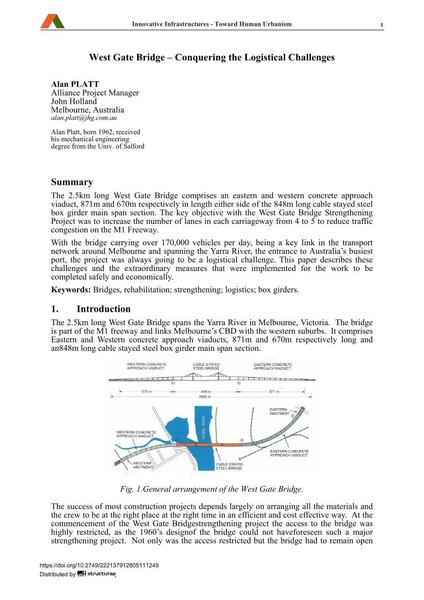West Gate Bridge – Conquering the Logistical Challenges

|
|
|||||||||||
Détails bibliographiques
| Auteur(s): |
Alan Platt
|
||||
|---|---|---|---|---|---|
| Médium: | papier de conférence | ||||
| Langue(s): | anglais | ||||
| Conférence: | 18th IABSE Congress: Innovative Infrastructures – Towards Human Urbanism, Seoul, Korea, 19-21 September 2012 | ||||
| Publié dans: | IABSE Congress Seoul 2012 | ||||
|
|||||
| Page(s): | 903-910 | ||||
| Nombre total de pages (du PDF): | 8 | ||||
| DOI: | 10.2749/222137912805111249 | ||||
| Abstrait: |
The 2.5km long West Gate Bridge comprises an eastern and western concrete approach viaduct, 871m and 670m respectively in length either side of the 848m long cable stayed steel box girder main span section. The key objective with the West Gate Bridge Strengthening Project was to increase the number of lanes in each carriageway from 4 to 5 to reduce traffic congestion on the M1 Freeway. With the bridge carrying over 170,000 vehicles per day, being a key link in the transport network around Melbourne and spanning the Yarra River, the entrance to Australia’s busiest port, the project was always going to be a logistical challenge. This paper describes these challenges and the extraordinary measures that were implemented for the work to be completed safely and economically. |
||||
| Mots-clé: |
ponts caissons renforcement
|
||||
